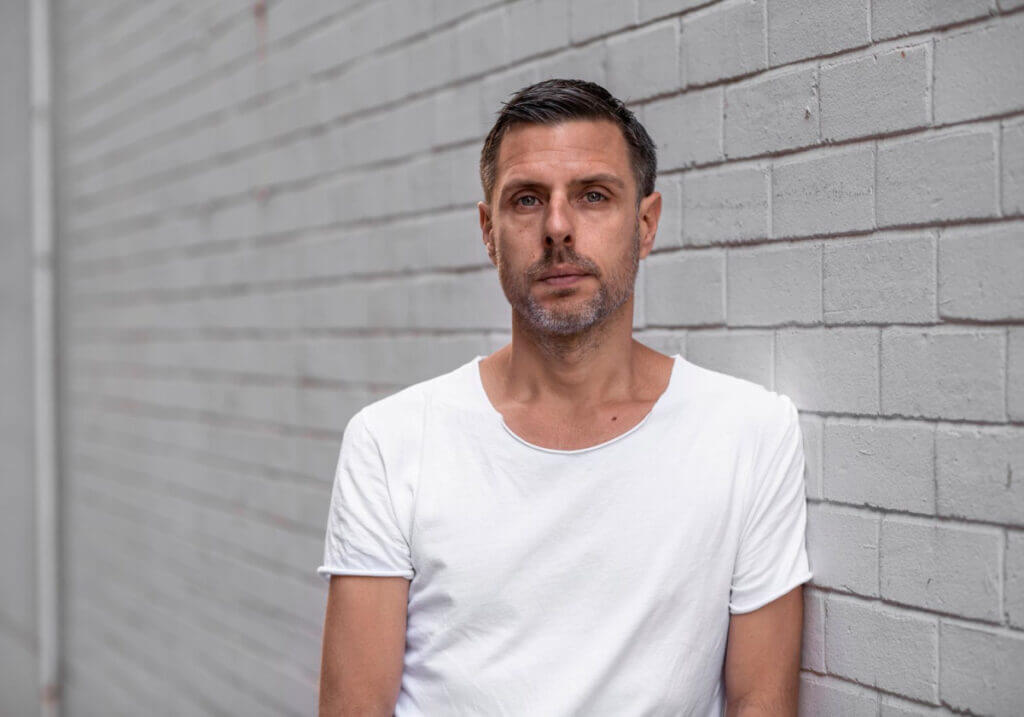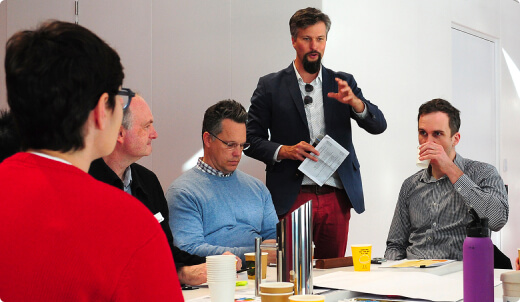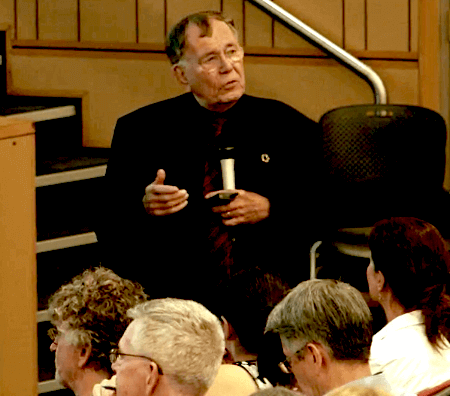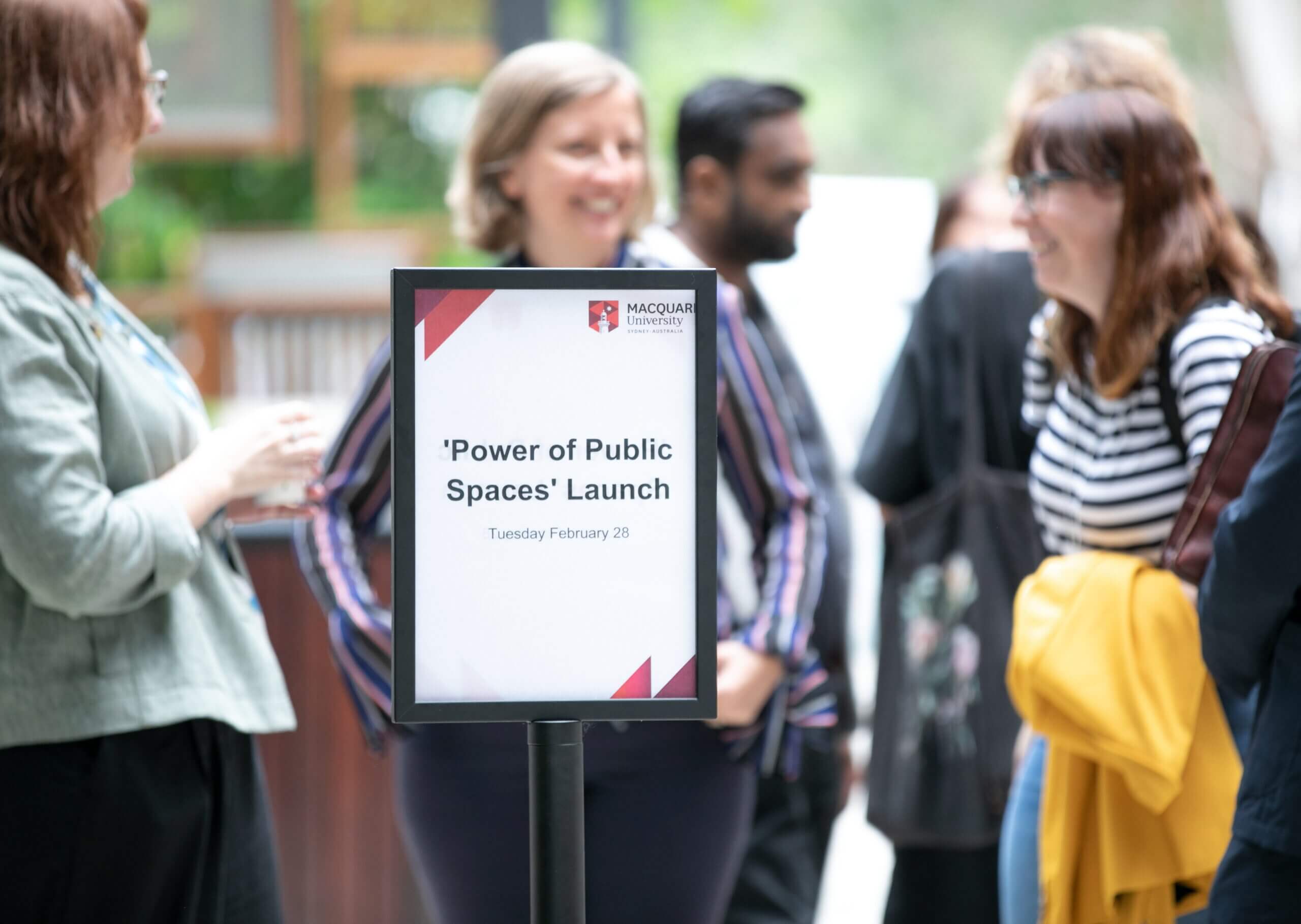
How do we ensure our public spaces are inclusive, safe and sustainable?
This event celebrated the launch of an innovative collaboration between Macquarie University and the NSW government that addresses how our public spaces are planned, created, cared for and shared.
The Power of Public Spaces research project was launched in February 2023 in front of an audience of fellow academics, government and sector colleagues. An Australian Research Council-funded collaboration between researchers at Macquarie University’s School of Social Sciences and industry experts in the Cities Revitalisation and Place team at Transport for NSW, the project engages communities, academics and big thinkers on the changing role of public space in an Australian context. The launch presentation gave audiences the chance to delve into some of the multi-faceted issues the team will consider.
Bridging theory and practice
Then Minister for Infrastructure, Cities and Active Transport, the Hon. Rob Stokes opened the proceedings and spoke about the importance of shared public spaces in bringing communities together and the way our democracy is enhanced by providing and then nurturing these incredibly valuable gathering places for all our citizens.
Minister Stokes also spoke about the important role of research in breaking new ground and building evidence for a stronger sector. He highlighted the collaborative methodology the research will take; this design itself underscoring one of the hallmarks of successful and enduring public spaces.
The audience was then given a taster of things to come, with three “provocations” or short talks, designed to stimulate ideas and opinion on aspects of public space, it’s impact and its value.
Infrastructures of Care
Dr. Miriam Williams from Macquarie University opened these sessions by introducing the concept of care is an important focus of the grant research and speaking about Infrastructures of Care.
She stated that there was nothing necessarily remarkable about care as an idea or an activity. It’s also hard work, it’s invisible and it is ongoing. To exist she says, quoting Maria Puig de la Bellacasa, “someone, somewhere, must be taking care”.
"This understanding of public space as a place of care, or as places that we care for, and which care for us, is central to thinking about public space as places central to wellbeing, gathering, connections, games, and festivals. Some people though, experience public space as exclusionary, or unsafe. "
Dr Miriam Williams
Miriam gave the example of Elle Davidson’s challenge in her 2021 TED talk on decolonising public space, to “consider the questions that first nation’s belonging and sovereignty pose to settler colonial frameworks; and then to re-imagine our public spaces to embody the concept of cultural safety through design, participation, and practice”.
So, in Australia, where public spaces are and always have been Country - Country that has nurtured and been nurtured by Aboriginal and Torres Strait Islander people for time immemorial - how can a focus on public spaces being care-full be useful as an approach for research and practice?
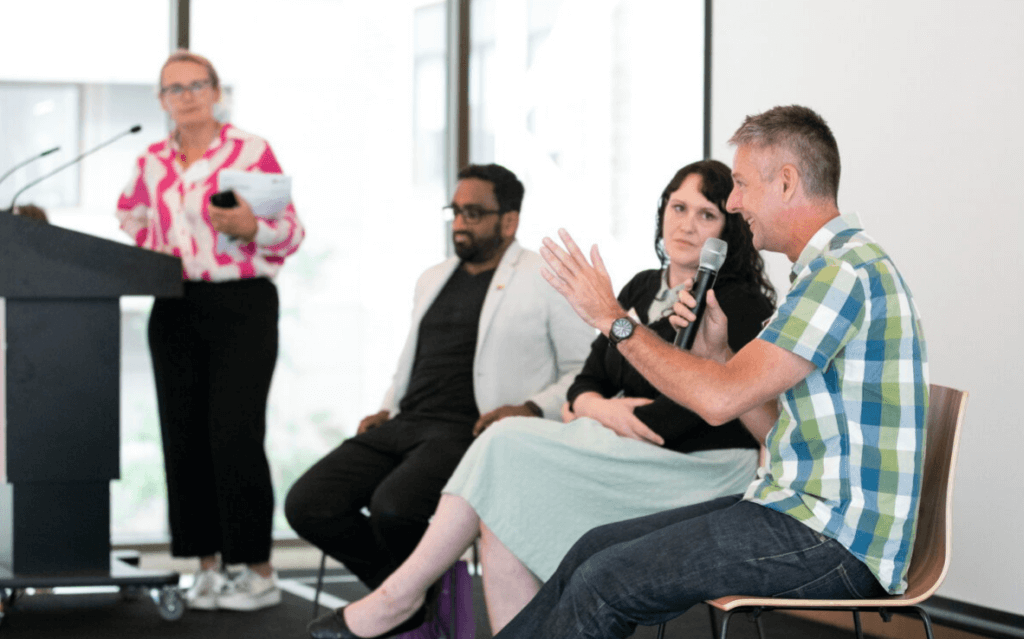
The public/private nexus
Professor Kurt Iverson invited the audience to consider the nature of publicly accessible places, which are privately owned and controlled. How might we embed a set of rights and responsibilities in public spaces? These thresholds between private and public all come with different sets of rules. These changing rules are felt unevenly across societal groups.
"If government cedes authority or ownership of public space as part of a development, we should not be ceding authority to determine the kind of ‘public-ness’ that takes hold and is made home in those places.”
Professor Kurt Iverson
Invigorating public space
Michael Rodrigues, NSW 24hr Commissioner, introduced himself as being tasked with “getting people out of the house and into the city” following several lockdowns during the COVID-19 pandemic. He spoke about the trade-off, when talking about ‘enlivening’, ‘activating’ or ‘invigorating’ public space it’s a question of the tension between public gain and private pain. He looks at the trade off in terms of cost and benefit to locals and visitors, and impacts on the places involved, and how difficult it is to implement. Michael asks what needs to change in governance models to overcome these issues of participation and inclusion in public life?
These provocations had everyone thinking about some of the bigger questions about the nature of place and how it nurtures and cares for us, shifting our attention to the huge variety of communities using public spaces in a multitude of ways, across the full spectrum of day and night; and of the nature of public and private ownership management and how public space is shared in practice.
The room was positively buzzing toward the end of these provocations. This great energy led to a short, impromptu Q&A session and a chance for several questions and suggestion lines of inquiry including how to harness grassroots and community expression, and almost de-professionalise events and tactical interventions. Is it a true cultural expression of the city if it’s designed and planned by professionals?
Miriam closed this session with the apt comment that empowering community is a core value and theme in the research that the Power of Public Spaces project will explore. It’s vital to the continued resilience of places that we value authenticity and the collective relationships that a place them to community.
About the speakers
- Dr Caroline Butler-Bowdon, then Executive Director, Cities Revitalisation and Place, Transport for NSW
- Professor Donna Houston, Discipline Chair of Geography and Planning, School of Social Sciences, Macquarie University
- Professor Kate Lloyd, School of Social Sciences, Macquarie University
- Dr Miriam Williams, Senior Lecturer, School of Social Sciences, Macquarie University
- Michael Rodrigues, 24-Hour Economy Commissioner
- Professor Kurt Iveson, Professor of Urban Geography, School of Geosciences, University of Sydney
- Professor Louise D’Arcens, Deputy Dean, Research and Innovation, Faculty of Arts, Macquarie University
